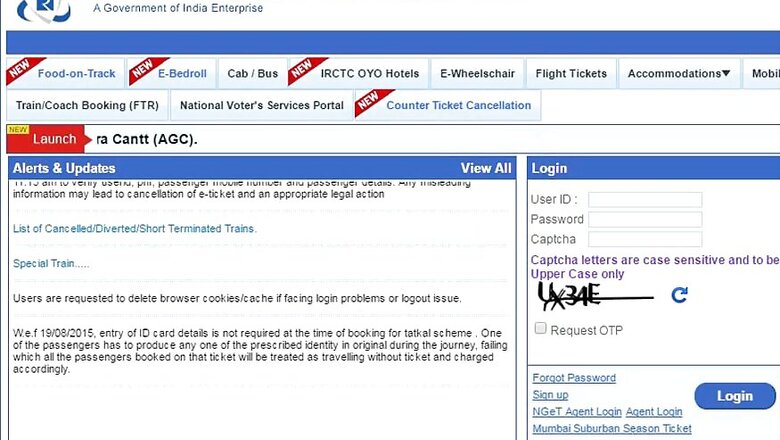
views
The initial public offering (IPO) of state-owned Indian Railway Catering and Tourism Corporation (IRCTC) received a strong response on the opening day itself.
According to data, the Rs 645 crore IRCTC IPO had been subscribed 81% just a few hours after it opened on 30 September. Shares set aside for retail investors were subscribed 2.2 times, employees' portion was also fully subscribed, while non-institutional investors' category saw a subscription of 21%.
Looking at the first-day response, it looks certain that IRCTC IPO subscription figures would hit the roof. So, if you are an investor in the IRCTC IPO, you may not receive the number of shares you have applied for, or you may not receive any shares at all. We will explain why.
It is said an IPO is oversubscribed when the total number of shares investors want to buy is higher than the number of shares on offer. To put it simply, oversubscription indicates the number of shares supplied by the issuer company is not enough to meet the demand.
So, for example, if a company is issuing 10,000 shares in an IPO, a 10-times oversubscription means investors’ demand is about 1 lakh shares. In such cases, the allotment of shares is done by predefined rules laid down by market regulator Securities and Exchange Board of India (Sebi).
In every IPO, investor categories are distinguished and a percentage of shares is allotted to every category. In case of IRCTC IPO, of the total 20 million shares on offer, 50% will be allocated to qualified institutional buyers (QIBs), 15% will be available to the non-institutional investor category, and 35% to the retail category (which invests less than Rs 2 lakh). There is an additional employee reservation portion of 160,000 shares.
Then it is important to understand the meaning of lots. A lot is a collection of shares and it also defines the minimum number of shares an investor need to buy. Companies issues shares in lots. In case of IRCTC, the lot size is 40 equity shares and investors can bid in multiples of 40 equity shares thereafter.
What happens if the retail category gets oversubscribed, which has already happened in case of IRCTC? In such cases, the total number of shares available for retail investors is divided by the minimum lot size. This helps in determining the number of retail investors who will be allocated shares.
Also, if the total number of applications is more than the number of lots available, no application is allotted more than one lot. This is to ensure that all investors have an equal chance of being allotted IPO shares, regardless of the number of lots they have bid for. In other words, an investor who bid for just 1 lot will be treated on par with another investor who bid for 10 lots. This way, fairness is ensured in IPO allotment.
If number of lots available exceeds the number of retail investors, the eligibility to get the minimum bid lot is determined by a draw. This is a completely automated and a computerized process, leaving no room for manipulation.
So, it can be concluded that in case an IPO is oversubscribed manifold, there are chances that more retail investors will receive nothing.













Comments
0 comment